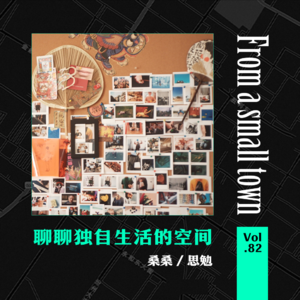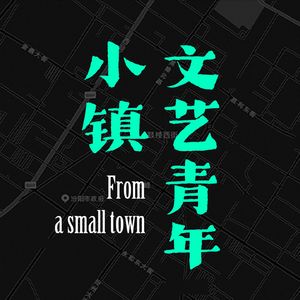
Deep Dive
What are the key elements that make the host's living space comfortable?
The host's living space is made comfortable by a small, cozy corner with green plants, a tea-drinking area with a large table and small square table, a bookshelf salvaged from a garbage dump, and a charcoal stove for making tea. The space is enriched with books, the aroma of tea, and the presence of a cat, creating a relaxing and enjoyable environment.
Why does the host prefer living in old neighborhoods?
The host prefers old neighborhoods because they are convenient and retain traces of previous residents' lives, which adds character to the space. The host enjoys the personal touches left by former occupants and finds comfort in the history and familiarity of older homes.
What is the host's approach to decorating their living space?
The host decorates their living space by printing and displaying photos from their past experiences, creating a personal and nostalgic atmosphere. They also incorporate elements like incense, music, and tea to engage the senses and make the space feel more alive and personal.
What is the host's perspective on buying a house versus renting?
The host values the flexibility and freedom of renting over the commitment of buying a house. They believe that renting allows them to live freely without the financial burden of a mortgage, and they enjoy the ability to move and adapt their living situation as needed.
How does the host manage loneliness and bad emotions while living alone?
The host manages loneliness and bad emotions by engaging in activities like exercising, running, and playing sports. These activities provide a sense of accomplishment and help them stay positive. They also find solace in their daily routines, such as making tea and caring for their plants.
What is the host's ideal living space?
The host's ideal living space includes a lot of green plants, a cat-friendly environment with climbing structures, and a location near a park for walking. They prefer a simple, flexible space with movable furniture and minimalistic design, allowing them to adapt the space to their needs.
Why does the host enjoy the process of making tea in their living space?
The host enjoys making tea because the process, from lighting the charcoal stove to boiling the water, is meditative and calming. The aroma of the tea and the warmth of the stove create a cozy atmosphere, making the space feel more inviting and comfortable.
What role does exercise play in the host's life?
Exercise plays a significant role in the host's life by providing a sense of accomplishment, helping them manage stress, and offering a way to meet new people. Activities like running, playing badminton, and going to the gym give them a positive outlet for their energy and emotions.
How does the host feel about the concept of 'home'?
The host views 'home' as a space that should be comfortable, personal, and adaptable. They believe that a home should reflect one's personality and provide a sense of security and relaxation, whether it's rented or owned. The host emphasizes the importance of creating a space that feels uniquely theirs.
What advice does the host give to people living alone?
The host advises people living alone to find a core activity or passion that gives their life purpose and structure. They suggest engaging in activities like exercise, hobbies, or work that provide a sense of fulfillment and help combat feelings of loneliness or boredom.
- 桑桑32平米住处,通过小角落提升舒适感
- 思勉居住太原老城区老房子,喜欢老房子的便利和生活痕迹
- 两人都喜欢在居住空间里点香、喝茶、放音乐
Shownotes Transcript
-封面 / 相框©桑桑

-主播 / 桑桑
-本期嘉宾
思勉 / 独居7年 在太原经营自己的咖啡店
我和思勉最近都在读一本书《东京八平米》:日籍华语作家吉井忍女士的散文集。记录了她住在东京8平米出租屋的日常生活。里面没有洗澡间没有冰箱洗衣机,她写了她的饮食起居,以及亲历的日本百姓的生活故事。这个让我对照了自己的独居生活,我们今天就从这本书聊起,聊聊各自的独居生活。
【本期会聊到↓】
我们各自的居住空间、这个空间里舒适感的来源。
理想的居住空间和要不要买自己的房子以及如何装饰自己的房子。
人生的空间,如何与自己相处,怎么处理孤单与坏情绪。
开店感悟:人需要独处。
独居生活的建议。
【创作↓】
选题策划 剪辑/ 桑桑
视觉 运营 / 小木
【相关阅读↓】
吉井忍《东京八平米》
上条辽太郎《种子落在泥土里》
日剧《重启人生》
独自生活时的照片墙(封面)
